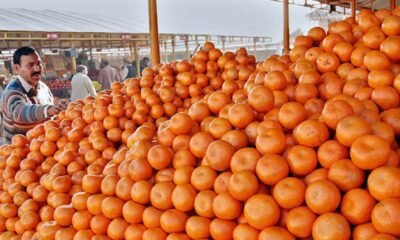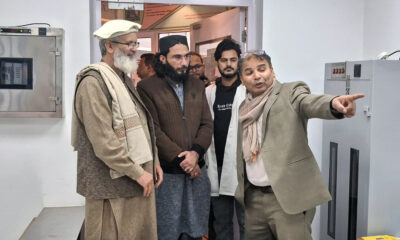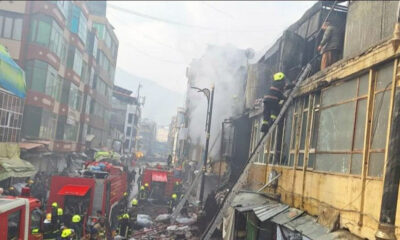Latest News
EITI: Afghanistan achieves transparency despite barriers
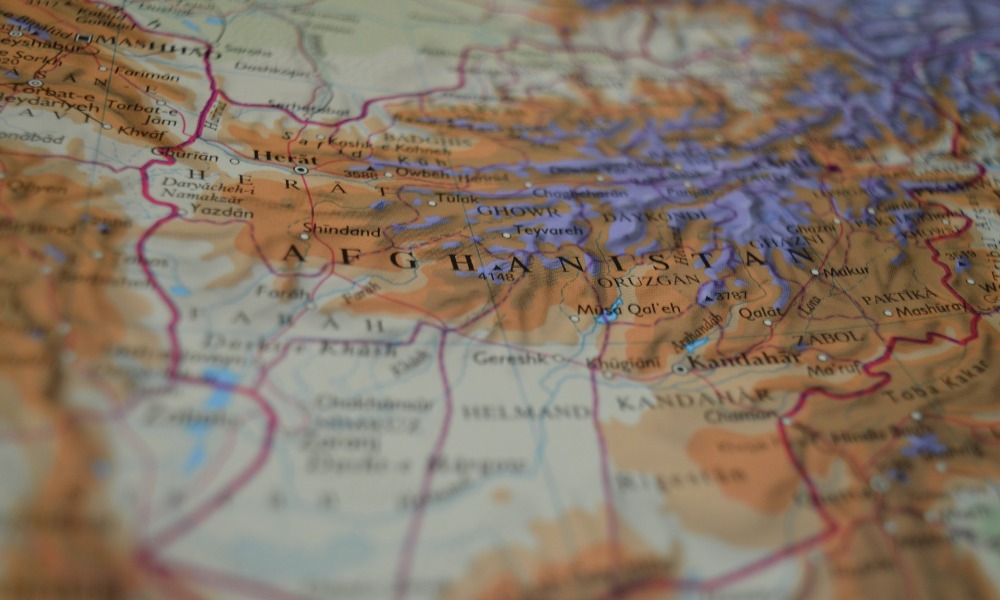
Following its second Validation, Afghanistan has made meaningful progress in implementing the Extractive Industries Transparency Initiative (EITI) Standard.
Afghanistan has been a member of the Extractive Industries Transparency Initiative since 2010, but its membership in the organization was suspended due to its inadequate implementation in 2014 and 2017.
The Extractive Industries Transparency Initiative (EITI) in a statement on Thursday said that Afghanistan has improved its transparency of licenses and contracts, state-owned enterprises and quasi-fiscal expenditures. As a result, Afghanistan’s temporary suspension has been lifted.
EITI board congratulates Afghanistan for addressing shortcoming identified in its first validation through systematic disclosures of data delivered by concrete reforms in government systems.
Afghanistan’s President Ashraf Ghani noted the important role the EITI plays in the country. “Every citizen has the right to know who is developing the country’s natural resources and how the government is managing the revenues from these industries on their behalf,” he said. “The EITI is one of the tools that is helping us achieve this policy objective. It has been instrumental in supporting our institution-building efforts in a sector critical to the economic future of Afghanistan.”
The Ministry of Mines and Petroleum announced Thursday that Afghanistan has rejoined the Extractive Industries Transparency Initiative (EITI).
Building transparent institutions and systems
Afghanistan’s government has embraced open data platforms, establishing online reporting systems to enhance transparency of extractive sector management and to address shortcomings identified in its first Validation. This has been achieved in an evolving political environment marked by presidential elections in 2019 and intra-Afghan peace negotiations in 2020. The World Bank underscored the EITI’s value in driving public finance management reforms in a context of fragility and violence.
In 2018, the Ministry of Mines and Petroleum (MOMP) launched a new Transparency Portal, providing information on licenses, fiscal terms, legal and beneficial ownership information, production data and non-tax company payments to government. Since then, the portal has become even more comprehensive.
Taking action to improve accountability
State-owned enterprises (SOEs) are important players in Afghanistan’s extractive sector, accounting for nearly two thirds of government extractive revenues between 2008 and 2017. Two SOEs – Afghan Gas Enterprise and North Coal Enterprise – are strategic for the government’s plans to improve revenue generation from the sector.
In 2019, Afghanistan undertook the landmark achievement of auditing the two SOEs for the first time. This exercise highlighted gaps in the SOEs’ record-keeping and financial management, and was a necessary step in the government’s plans to corporatise the enterprises. Moving forward, the government will need to ensure auditing becomes regular practice, drawing on EITI support to follow-up on findings.
Afghanistan’s government has legislated for beneficial ownership information to be made public for mining, oil and gas licenses. The country began publishing ownership data on its Transparency Portal earlier this year. Yet more work needs to be done to ensure that all beneficial owners are publicly disclosed, including politically-exposed persons and owners who control companies through non-equity means.
Strengthening multi-stakeholder oversight
EITI Board Chair Helen Clark commented on the significance of Afghanistan’s recent progress. “Afghanistan has made concrete achievements in improving transparency despite challenging circumstances,” she said. “The priority should be to draw on this emerging transparency for policy-making in the sector. This is key to broader economic development efforts and ensuring that all citizens have an opportunity to engage in debate on the governance of the sector.”
Data from EITI reporting – spanning several legislative changes and wide commodity price fluctuations over the past decade – provides a key resource to support further research and analysis. But despite proactive dissemination efforts, including in provincial capitals, there is a lack of data use by diverse stakeholders.
Yet an initiative by Integrity Watch Afghanistan stands out. The civil society organisation is expanding its community-based monitoring programme to include extractive activities, empowering host communities to track the impacts of extractive projects in their areas. Stronger engagement in EITI implementation by government, industry and civil society could lead to more such innovations.
Afghanistan’s informal mining sector is one area where there is a high demand for data. While the government collects USD 45m a year in mining revenue, it is estimated that more than six times that amount is being lost through unmonitored, small-scale mining activities. There is strong interest, particularly from civil society, to use EITI reporting to shed more light on unrecorded mining and support efforts to formalise the sector.
According to EITI Afghanistan will have 18 months (28 April 2022) to address the remaining five “Corrective actions” in its implementation of the EITI Standard.
The Afghan Ministry of Mines and Petroleum said that the ministry renewing its commitment to implement the corrective actions of the Extractive Industries Transparency Initiative.
The Extractive Industries Transparency Initiative is an international organization that ensures transparency in the country’s mines, gas and oil.
Latest News
Afghanistan signs 30-year deal for marble mining in Daikundi

The Ministry of Mines and Petroleum of Afghanistan has signed a 30-year agreement with a private company to extract marble in Daikundi province.
Under the contract, the company will invest AFN 283 million in exploring and mining marble at the “Mesh-Uliya” site, spanning 16.74 square kilometers in central Daikundi.
Hedayatullah Badri, Minister of Mines and Petroleum, stated that the marble will be processed domestically before being exported abroad. He added that the Mesh-Uliya project is expected to create around 200 jobs, and the company is committed to supporting local communities through social initiatives.
Economic experts highlight that such investments, especially those focusing on domestic processing, are crucial for job creation, boosting exports, and strengthening the national economy. Analysts further note that the project will improve local infrastructure, expand social services, and enhance the economic and social well-being of Daikundi residents.
Since the return of the Islamic Emirate to power, efforts to develop Afghanistan’s mining sector have intensified, with multiple contracts signed in areas including cement, copper, iron, and lapis lazuli, involving both domestic and international companies.
Latest News
Passenger bus veers off Salang Highway, leaving 5 dead, dozens injured
Latest News
Major fire in Mandawi Kabul market contained, extensive losses prevented
Local shopkeepers said the fire broke out around 4 a.m.
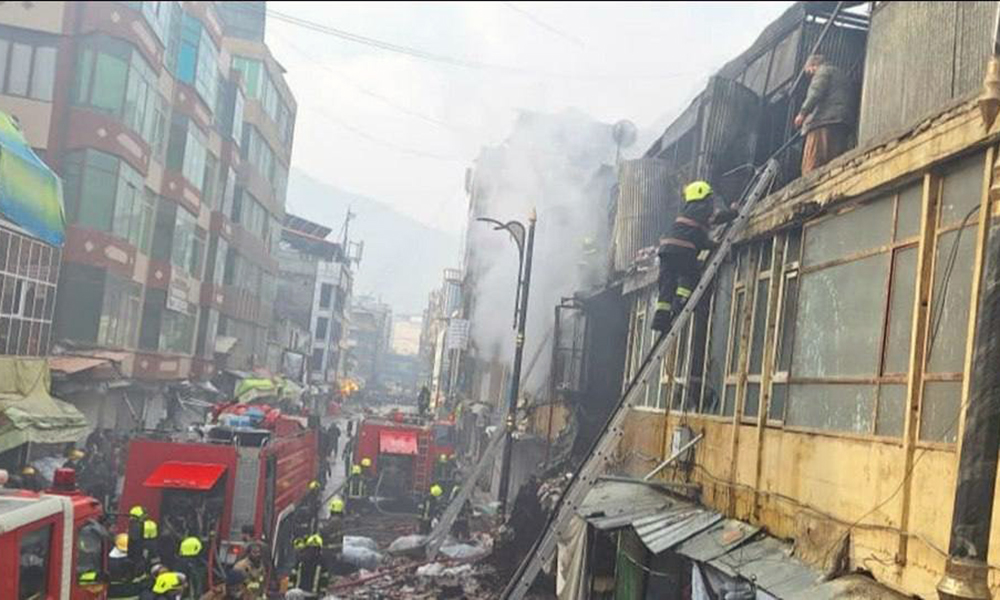
The Ministry of Interior reported that personnel from the General Directorate of Firefighting and Emergency Response successfully prevented the further spread of a fire at Mandawi market on Kabul early Sunday morning.
Abdul Mateen Qani, spokesperson for the ministry, said that the fire destroyed 10 storage facilities and 8 shops. He added that initial losses are estimated at around $700,000, but timely action by firefighting personnel saved property worth approximately $2.2 million.
Qani explained that the fire was caused by an electrical short circuit. He praised the rapid and effective containment operations, which prevented more extensive damage.
Local shopkeepers said the fire broke out around 4 a.m.
-

 International Sports5 days ago
International Sports5 days agoIPL 2026: Teams take shape after auction as franchises balance star power and depth
-

 International Sports5 days ago
International Sports5 days agoILT20: Abu Dhabi Knight Riders end Desert Vipers’ unbeaten run in dramatic one-run win
-

 Latest News3 days ago
Latest News3 days agoAfghan border forces prevent illegal entry of hundreds into Iran
-

 Latest News2 days ago
Latest News2 days agoPakistan summons Afghan diplomat over deadly attack in North Waziristan
-
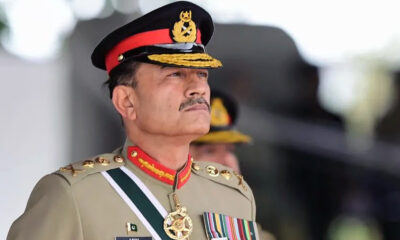
 Regional5 days ago
Regional5 days agoPakistan’s military chief Asim Munir in spotlight over Trump’s Gaza plan
-

 Business5 days ago
Business5 days agoMahirood Customs leads Iran’s exports to Afghanistan
-

 World5 days ago
World5 days agoTrump adds seven countries, including Syria, to full travel ban list
-
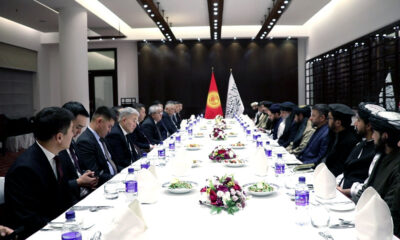
 Latest News5 days ago
Latest News5 days agoAfghanistan, Kyrgyzstan discuss expanding trade and economic cooperation


